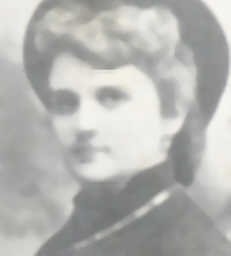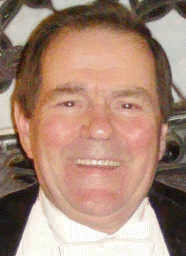[page 26] In short, Mrs. Pontellier was not a mother-woman. The mother-women seemed
to prevail that summer at Grand Isle. It was easy to know them, fluttering about with
extended, protecting wings when any harm, real or imaginary, threatened their precious
brood. They were women who idolized their children, worshiped their husbands and esteem
it a holy privilege to efface themselves as individuals and grow wings as ministering angels.
Robert was twenty-six years old and had since his fifteenth birthday attached himself during summers at Grand
Isle to some fair lady, a young girl, a widow, or perhaps an interesting married woman like Edna. Edna was turning
into an adult at the age of twenty-eight and began to realize it. I recall when Dr. Zurik, who was going to take my
tonsils out when I was twenty-nine, told me, "You know this will be a serious operation. You're not a child anymore;
you're an adult." It was a simple statement, but it made me realize, made me feel as a reality, for the first time, that
I had become an adult. When Edna declined the offer to go to the beach with Robert, and then later accepted, she
came to such a realization herself.
[page 31, 32] In short, Mrs. Pontellier was beginning to realize her position in the universe
as a human being, and to recognize her relations as an individual to the world within and
about her. They may seem like a ponderous weight of wisdom to descend upon the soul of
a young woman of twenty-eight — perhaps more wisdom than the Holy Ghost is usually
pleased to vouchsafe to any woman.
But the beginning of things, of a world especially, is necessarily vague, tangled,
chaotic, and exceedingly disturbing. How few of us ever emerge from such beginning! How
many souls perish in its tumult!
The voice of the sea is seductive; never ceasing, whispering, clamoring, murmuring,
inviting the soul to wander for a spell in abysses of solitude; to lose itself in mazes of
inward contemplation.
The voice of the sea speaks to the soul. The touch of the sea is sensuous, enfolding
the body in its soft, close embrace.
The voice of Kate Chopin enfolds us, the reader, into its soft, close embrace. Her voice reaches across three
centuries with the vibrancy and timbre of a modern voice to touch our soul. Her voice sits lightly on our soul like "the
night sat lightly upon the sea and the land. There was no weight of darkness; there were no shadows. The white light
of the moon had fallen upon the world like the mystery and the softness of sleep." (Page 46)
She learnt to swim for the first time after years of simply splashing about in the Gulf waters. Becoming an
individual, learning to swim, she was setting out from land on her own this summer, leaving people behind her on the
shore.
[page 47] Once she turned and looked toward the shore, toward the people she had left
there. She had not gone any great distance — that is, what would have been a great
distance for an experienced swimmer. But to her unaccustomed vision the stretch of water
behind her assumed the aspect of a barrier which her unaided strength would never be able
to overcome.
Upon her return to their home on Esplanade in New Orleans at the end of the summer, we observe Mr.
Pontellier and are able to deduce his relationship to Edna from this description of how he felt about his house.
[page 71] Mr. Pontellier was very fond of walking about his house examining the various
appointments and details, to see that nothing was amiss. He greatly valued his
possessions, chiefly because they were his, and derived genuine pleasure from
contemplating a painting, a statuette, a rare lace curtain — no matter what — after he had
bought it and placed it among his household goods.
Clearly, Edna was one of his household goods, and Léonce, outside of marriage obligations, never penetrated
any further into Edna than into one of his delicate statuettes. If she were shiny and pretty on the outside, he was
pleased. When he made a fuss over Edna's not remembering the callers of one afternoon, he was not at all interested
in Edna's reasons, but rather in how her actions would upset the wives of his business contacts. He admonished her,
"But it's just such seeming trifles that we've got to take seriously; such things count." They were actual trifles to
Edna, but he didn't seem to notice or care. His statuette was out of place and needed to be set aright.
Robert had left to find his fortune in Mexico and remove himself from the temptation, the forbidden fruit which
Edna represented to him. Edna thought of him constantly.
[page 75] As Edna walked along the street she was thinking of Robert. She was still under the
spell of her infatuation. She had tried to forget him, realizing the inutility of remembering.
But the thought of him was like an obsession, ever pressing itself upon her. It was not that
she dwelt upon details of their acquaintance, or recalled in any special or peculiar way his
personality; it was his being, his existence, which dominated her thought, fading sometimes
as if it would melt into the mist of the forgotten, reviving again with an intensity which filled
her with an incomprehensible longing.
Finally Léonce noticed his statuette was out of place a lot, and consulted his doctor, asking his help to fix the
problem, as if it were some faulty carriage wheel and he were a blacksmith. But the doctor was helpless to fix a wheel
which was rolling just fine on its own, only not where Léonce thought it should be going. Her sister's wedding in
Kentucky was such a place he wanted her to roll to, but she resisted. When her father, a Colonel in the Confederate
Army, visited them in New Orleans, he told stories to her and the doctor who was visiting and that allowed the
doctor to tell stories about a deviant woman who returned to her homely ways after her escapades were done.
[page 92] The story did not seem especially to impress Edna. She had one of her own to
tell, of a woman who paddled away with her lover one night in a pirogue and never came
back. They were lost amid the Baratarian Islands, and no one ever heard of them or found
a trace of them from that day to this. It was pure invention. She said that Madame Antoine
had related it to her. But every glowing word seem real to those who listened.
She and Robert had rowed in a pirogue at Grand Isle one summer night, and her fancy had elaborated that
incident into the dream reality she earnestly desired.
Mr. Pontellier left for the Kentucky wedding followed by a long business stay in New York and Edna was left
alone, her two children placed in the arms of her mother-in-law in Iberville. She spent time with Alcée Arobin, the
man her doctor hoped she would avoid, long drives, days at the races, as he tried unsuccessfully to woo Edna. She
found a room of her own, a small place to rent a few steps away from the family home, and made plans to install
herself into the apartment before Léonce returned. She told him of her plans and he absolutely forbid her to do so,
but his words bounced off of Edna as if she were actually a statuette. Robert came to town and he as much as
confessed he'd loved and missed her while in Mexico, but he would not make a move on her. She planned a dinner
for about twelve of her closest friends, not the afternoon tea ladies her husband had forced her to entertain, but real
friends she had met in Grand Isle and in the French Quarter on her own. It was to be a sumptuous dinner, a last
supper, full of golden and silver accouterments, and she would preside as the Queen.
[page 112] The golden shimmer of Edna's satin gown spread in rich folds on either side of
her. There was a soft fall of lace encircling her shoulders. it was the color of her skin,
without the glow, the myriad living tints that one may sometimes discover in vibrant flesh.
There was something in her attitude, in her whole appearance when she leaned her head
against the high-backed chair and spread her arm, which suggested the regal woman, the one
who rules, who looks on, who stands alone.
And, in the end, she stood alone on the beach at night in Grand Isle, naked to the world, and swam out to sea.
~^~
Any questions about this review, Contact: Bobby Matherne
~~~~~~~~~~~~~~~~~~~~~~~~~~~~~~~~~~~~~~~~~~~~~~~~~~~~~~~~~~





